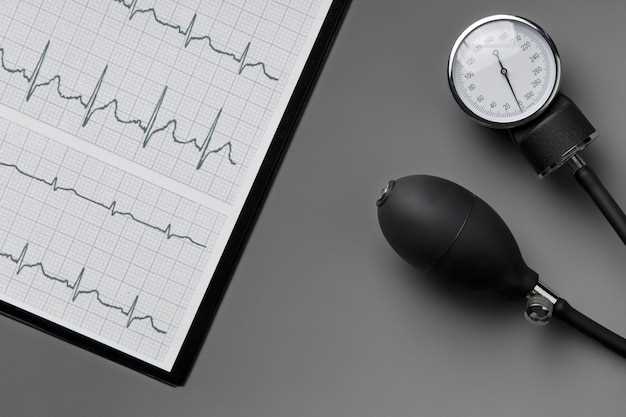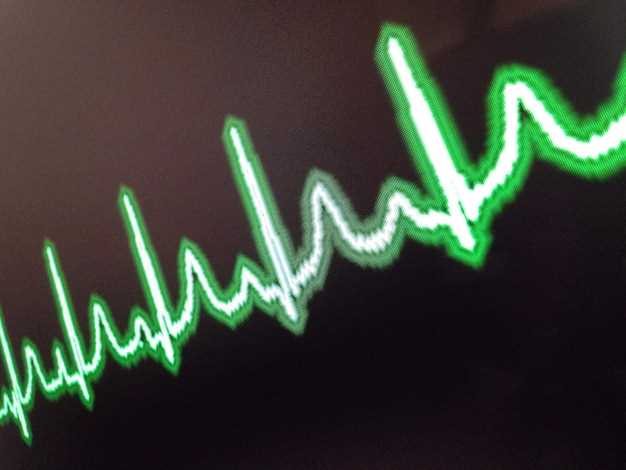
Losartan is a cutting-edge medication that can help you achieve a lower pulse rate and improve your overall cardiovascular health. If you are seeking a solution to reduce your pulse rate, Losartan may be the answer you’ve been looking for.
With its proven track record in lowering blood pressure and promoting heart health, Losartan is a reliable and effective option for managing your pulse rate. Say goodbye to high pulse rates and welcome a healthier heart with Losartan.
Don’t wait any longer – discover the benefits of Losartan for yourself and experience the positive impact it can have on your pulse rate and well-being.
Low pulse rate explained
Losartan is a medication commonly prescribed for the treatment of high blood pressure and other cardiovascular conditions. One of the potential side effects of Losartan is a low pulse rate, also known as bradycardia. This means that the heart beats slower than normal, which can sometimes cause symptoms such as dizziness, fatigue, and shortness of breath.
Bradycardia can be a concern for some patients, especially those with pre-existing heart conditions or who are taking other medications that can also affect heart rate. It is important to monitor your pulse rate regularly while taking Losartan and to consult your healthcare provider if you experience any symptoms of bradycardia.
Low pulse rate explained
Low pulse rate, also known as bradycardia, refers to a heart rate that is slower than normal. It is typically defined as a resting heart rate of less than 60 beats per minute. While a low pulse rate can sometimes be a sign of good cardiovascular health, it can also indicate an underlying medical condition.
Causes: Several factors can contribute to a low pulse rate, including strong physical fitness, certain medications like beta-blockers, hypothyroidism, electrolyte imbalances, and heart rhythm abnormalities.
Symptoms: Some individuals with a low pulse rate may experience symptoms such as fatigue, dizziness, fainting, shortness of breath, chest pain, or confusion.
Treatment: The treatment for a low pulse rate depends on the underlying cause. In some cases, no treatment may be necessary if the individual is asymptomatic. However, if symptoms are present or the low heart rate is due to an underlying condition, treatment may include medication adjustments, pacemaker implantation, or lifestyle modifications.
Prevention: Maintaining a healthy lifestyle, regular exercise, avoiding excessive alcohol consumption, and managing stress can help prevent a low pulse rate. Regular monitoring of heart rate and seeking medical advice if any concerning symptoms arise is crucial for maintaining heart health.
Benefits
Managing blood pressure is crucial for overall health and well-being. Losartan, as an effective antihypertensive medication, offers several benefits in this regard:
- Helps to lower blood pressure levels and maintain them within a healthy range.
- Reduces the risk of complications associated with high blood pressure, such as heart attacks, strokes, and kidney problems.
- Improves cardiovascular health by promoting proper blood circulation and reducing strain on the heart.
By incorporating Losartan into your treatment plan, you can actively manage your blood pressure and decrease the likelihood of developing serious cardiovascular conditions.
Managing blood pressure
Managing your blood pressure is crucial for maintaining a healthy heart and overall well-being. High blood pressure can put you at risk for heart disease, stroke, and other serious health conditions. By taking steps to manage your blood pressure, you can reduce your risk of these complications and live a healthier life.
Healthy lifestyle choices
One of the most effective ways to manage your blood pressure is to make healthy lifestyle choices. This includes eating a balanced diet that is low in salt, saturated fats, and cholesterol. Regular exercise can also help lower your blood pressure and improve your overall cardiovascular health.
Medication and monitoring

In some cases, medication may be necessary to help manage your blood pressure. It’s important to work closely with your healthcare provider to find the right medication and dosage for your specific needs. Regular monitoring of your blood pressure is also important, so you and your doctor can track your progress and make any necessary adjustments to your treatment plan.
Reducing risk of heart disease
Reducing the risk of heart disease is crucial for maintaining overall health. Losartan, a medication commonly used to treat high blood pressure, plays a significant role in lowering the risk of heart-related issues.
By helping to regulate blood pressure and improve blood flow, Losartan can reduce the strain on the heart, thereby decreasing the likelihood of heart disease. Additionally, Losartan has been shown to improve overall heart function and reduce the risk of heart attacks and strokes.
It is important to consult with a healthcare professional to determine if Losartan is the right medication for managing blood pressure and reducing the risk of heart disease. Following the prescribed dosage guidelines and regularly monitoring heart rate can further help in maintaining heart health and preventing cardiovascular problems.
Usage
Proper usage of Losartan is essential for effectively managing high blood pressure. It is important to follow your doctor’s instructions and take Losartan exactly as prescribed.
Administration
Losartan is usually taken once a day, with or without food. It is important to take the medication at the same time each day to maintain consistent blood levels.
Missed Dose
If you miss a dose of Losartan, take it as soon as you remember. However, if it is almost time for your next dose, skip the missed dose and continue with your regular dosing schedule. Do not take a double dose to make up for a missed one.
Proper dosage guidelines
Losartan dosage should be determined by a healthcare provider based on individual factors such as age, weight, and medical condition.
Typically, the initial dose of Losartan for adults with hypertension is 50 mg once daily. The dosage may be increased to a maximum of 100 mg per day based on the patient’s response.
It is important to follow the prescribed dosage and schedule provided by your healthcare professional to ensure optimal results and minimize the risk of side effects.
Do not adjust the dosage or stop taking Losartan without consulting your doctor.
Monitoring heart rate
Monitoring your heart rate is essential when taking Losartan to ensure that your pulse stays within a healthy range. A normal resting heart rate for adults is typically between 60 and 100 beats per minute. Losartan may cause a slight decrease in heart rate, which is beneficial for individuals with high blood pressure.
How to monitor your heart rate

To monitor your heart rate, you can use a wearable fitness tracker or a digital heart rate monitor. Simply wear the device on your wrist or chest and it will display your heart rate in real-time. Alternatively, you can manually check your pulse by placing two fingers on your wrist or neck and counting the beats for 30 seconds, then multiplying by 2 to get the beats per minute.
Regular monitoring of your heart rate while taking Losartan can help you and your healthcare provider track any changes and ensure that your heart is functioning optimally. If you notice any significant changes in your heart rate or experience symptoms such as dizziness, fainting, or palpitations, contact your healthcare provider immediately.
